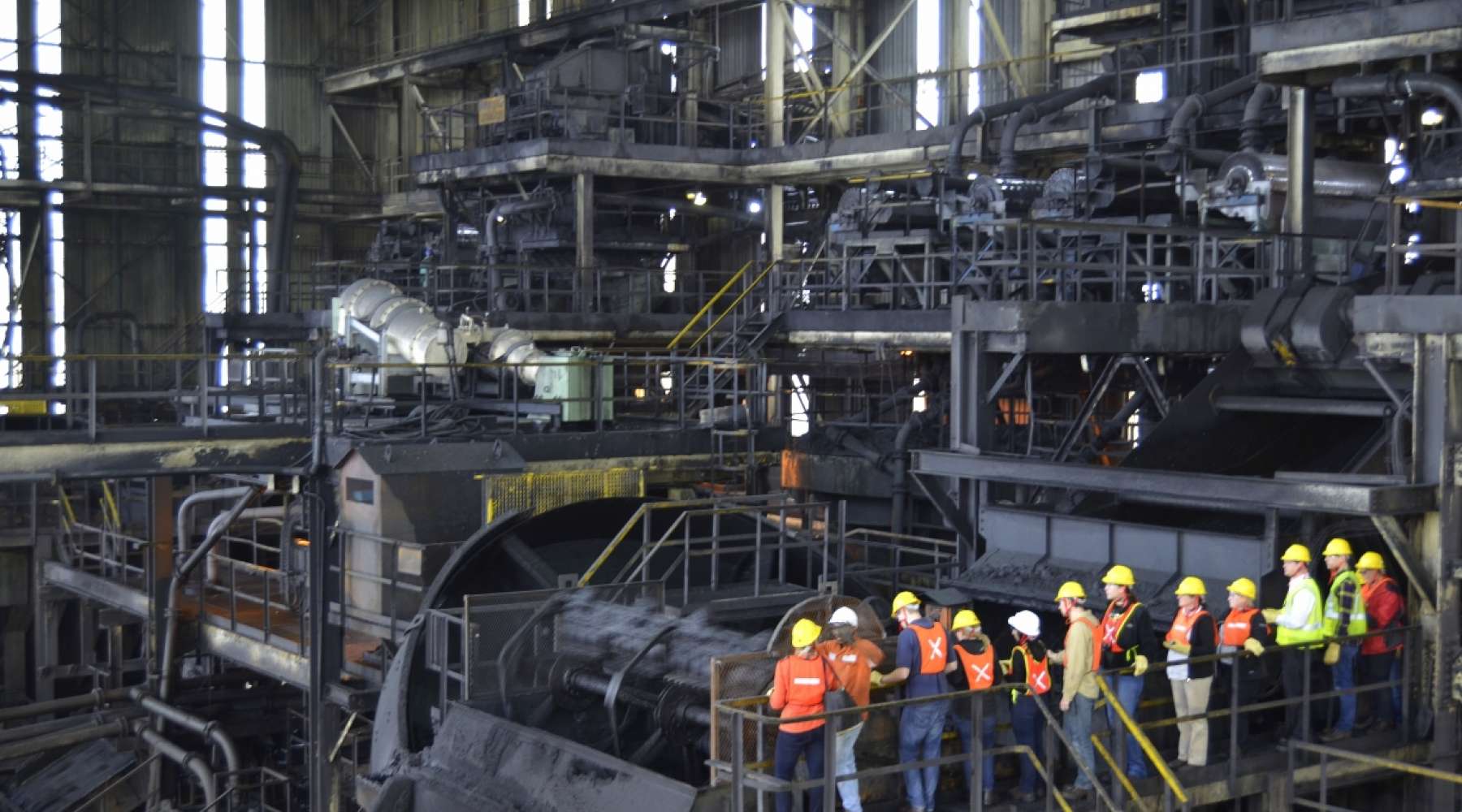
By Tatiana Gulnik T'15
I’m almost half way through my 24 hour plus journey back to Hanover after an amazing 10 days in South Africa. Our packed itinerary made the trip fly by so quickly and I’m getting myself ready to confront the reality of snowy Hanover with a little reluctance.
We were in Johannesburg for the first part of our Global Insight Expedition. The highlights there included a tour of Soweto; seeing rhinos and walking with an elephant in Pilanesberg National Park; and touring the Anglo-American coal processing plant (see photo). Anglo-American was one of the first companies in South Africa to respond to the growing HIV crisis by offering education, testing, and treatment to its employees when even the South African government refused to recognize the virus as a problem. By focusing on prevention and management of HIV, Anglo was able to improve the productivity of its workforce and the health program paid for itself. We also visited Sasol, a multinational energy and chemical company, where we met with several executives.
Cape Town, where we spent the second half of our trip, is a beautiful city with great food, beaches, mountains, music, and a thriving business scene. Our first morning, we visited Monkeybiz and Streetwires, two organizations focused on developing sustainable job opportunities for poor South Africans. Streetwires is a for-profit and Monkeybiz a non-proift, but both create a supportive marketplace for handicrafts that are representative of South African culture and sold both domestically and abroad. While it was easy to forget in our comfortable hotel in the upscale Green Point area of Cape Town, poverty and inequality are major problems in South Africa. Around 50% of the black population is considered poor, meaning that they live on less than $700 per month (this is compared to only about 5% of the white population). Income from handicrafts sold through organizations like Monkeybiz and Streetwires helps many with basic expenses and can even provide a path out of poverty.
After this, we visited some larger firms including Maersk (an international shipping company) and Pick & Pay (a South African grocery chain). Many of the larger companies we visited pointed to the challenge of finding educated employees to meet the government’s Broad Based Black Economic Empowerment (similar to affirmative action). Though the government spends 20% of GDP on education, South Africa is falling behind in terms performance, with only 50% of the population completing secondary studies. This stifles growth and further entrenches inequality. We also had the opportunity to meet and play with the group at Grassroot Soccer. This not-for-profit organization trains young community leaders to become soccer coaches and uses soccer as a vehicle for discussing taboo issues such as safe sex and HIV. Coaches not only play soccer with younger kids, but also support them in schoolwork and act as mentors. At the same time, coaches receive support and professional development resources to help them find full-time employment. By empowering young leaders, Grassroots curbs the spread of HIV in South African townships and gives hope to the children who are the future of the country.
Outside of company visits, we enjoyed the beautiful setting of Cape Town with a hike (or cable car ride) up Table Mountain, a visit to the Cape of Good Hope, sunset on the beautiful Clifton Beach, a wine tasting at Klein Constantia, and playtime with anemones and penguins along the coastal highway.
Our last night concluded with a Braai (barbeque) at Dean (and Professor) Phillip Stocken’s sister’s home in Cape Town. Being welcomed like family in this beautiful home was definitely one of the highlights of the trip. Overall, it was incredible to get to know Dean Stocken and hear his perspectives on the changes in his home country in the last 20 years. When we were driving he would often point out personal landmarks, like the stairs of his university where he remembered police using teargas to prevent white students from joining black students in protesting apartheid. It was also very interesting to speak with our guide, Kirsten, a native South African who lives in Cape Town about her perspectives on the current state of South African politics and society. And finally, the trip was also an amazing opportunity to get to know classmates at Tuck. The group was a mix of T’14s and T’15s and we had many memorable bonding opportunities with people we may not otherwise interact with much at Tuck. So even though coming back to Hanover is a little bittersweet, it’s great to return with some new friends and lots of amazing memories.
Photo by Mohan Kiran Pichika T'15.